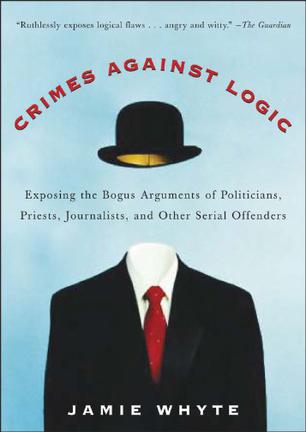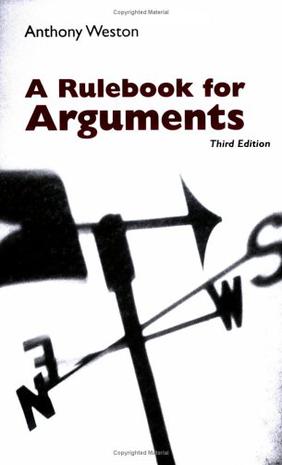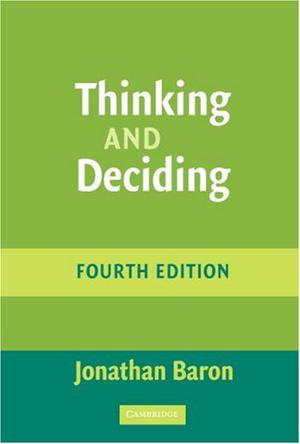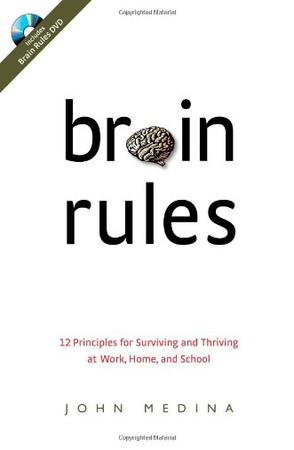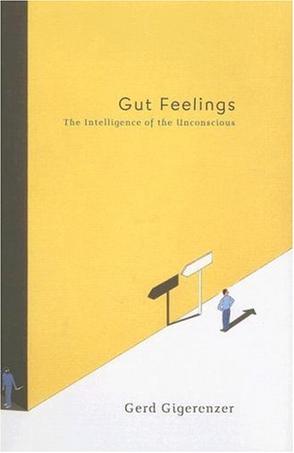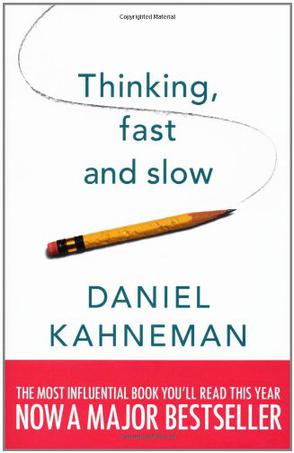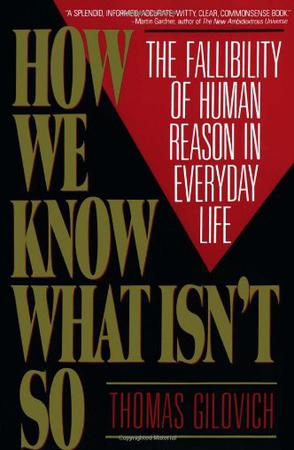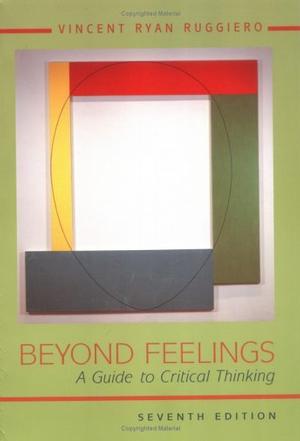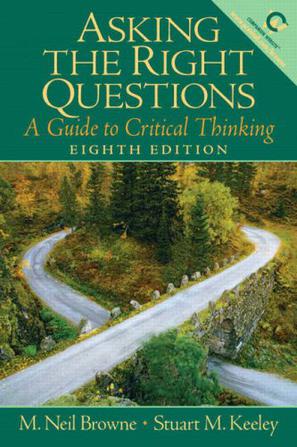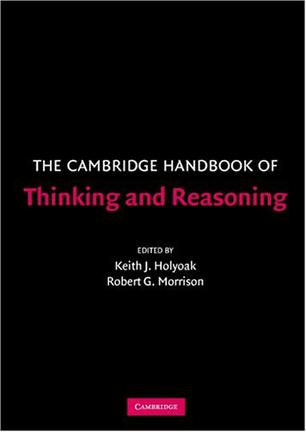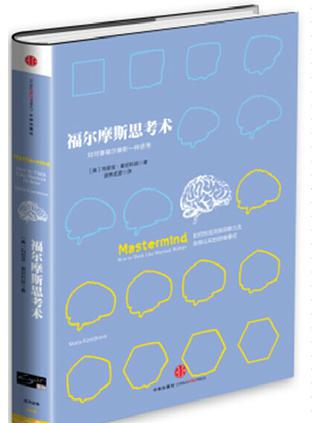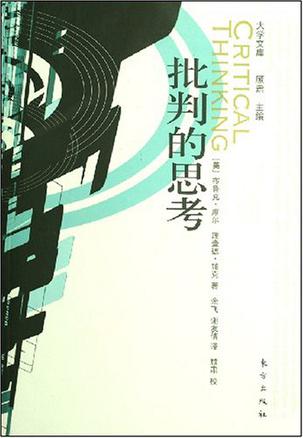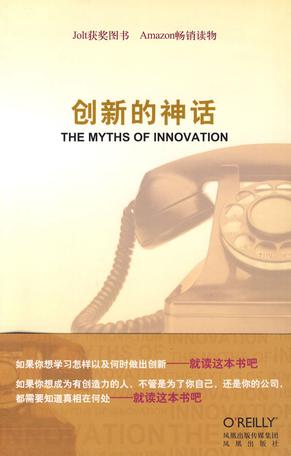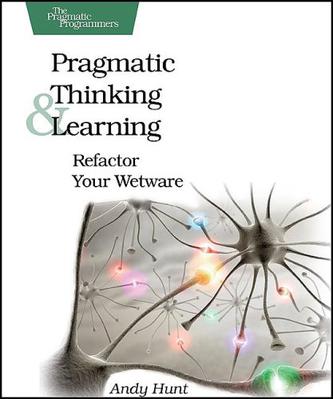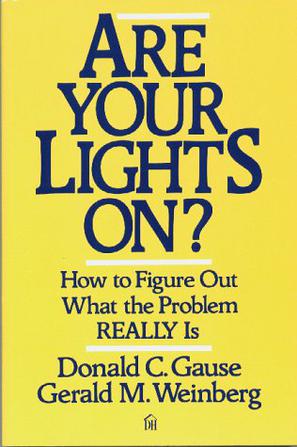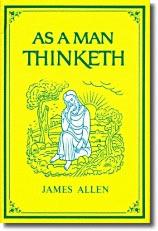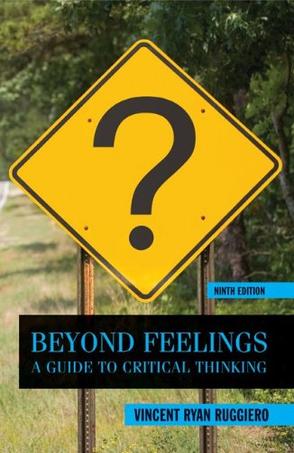欢迎来到相识电子书!
标签:Thinking
-
Blink
Intuition is not some magical property that arises unbidden from the depths of our mind. It is a product of long hours and intelligent design, of meaningful work environments and particular rules and principles. This book shows us how we can hone our instinctive ability to know in an instant, helping us to bring out the best in our thinking and become better decision-makers in our homes, offices and in everyday life. Just as he did with his revolutionary theory of the tipping point, Gladwell reveals how the power of blink' could fundamentally transform our relationships, the way we consume, create and communicate, how we run our businesses and even our societies.You'll never think about thinking in the same way again. -
Crimes Against Logic
This is a witty assault on lame rhetoric, specious logic, and official BS. Here's a fast-paced, ruthlessly funny romp through the mulligan stew of illogic, unreason, and just plain drivel served up daily in the media by pundits, psychics, ad agencies, New Age gurus, statisticians, free trade ideologues, business "thinkers," and, of course, politicians. Award-winning young philosopher Jamie Whyte applies his laser-like wit to dozens of timely examples in order to deconstruct the rhetoric and cut through the haze of shibboleth and doubletalk to get at the real issues. A troubleshooting guide to both public and private discourse, "Crimes Against Logic": analyzes the 12 major logical fallacies, with examples from the media and everyday life; takes no prisoners as it goes up against the scientific, religious, academic, and political establishments; helps you fine-tune your critical faculties and learn to skewer debaters on their own phony logic. -
Thinking and Deciding
Beginning with its first edition and through subsequent editions, Thinking and Deciding has established itself as the required text and important reference work for students and scholars of human cognition and rationality. In this, the fourth edition, Jonathan Baron retains the comprehensive attention to the key questions addressed in the previous editions - How should we think? What, if anything, keeps us from thinking that way? How can we improve our thinking and decision making? - and his expanded treatment of topics such as risk, utilitarianism, Baye's theorem, and moral thinking. With the student in mind, the fourth edition emphasises the development of an understanding of the fundamental concepts in judgement and decision making. This book is essential reading for students and scholars in judgement and decision making and related fields, including psychology, economics, law, medicine, and business. -
Brain Rules
In Brain Rules, Dr. John Medina, a molecular biologist, shares his lifelong interest in how the brain sciences might influence the way we teach our children and the way we work. In each chapter, he describes a brain rule--what scientists know for sure about how our brains work--and then offers transformative ideas for our daily lives.Medina's fascinating stories and infectious sense of humor breathe life into brain science. You'll learn why Michael Jordan was no good at baseball. You'll peer over a surgeon's shoulder as he proves that most of us have a Jennifer Aniston neuron. You'll meet a boy who has an amazing memory for music but can't tie his own shoes.You will discover how: * Every brain is wired differently * Exercise improves cognition * We are designed to never stop learning and exploring * Memories are volatile * Sleep is powerfully linked with the ability to learn * Vision trumps all of the other senses * Stress changes the way we learnIn the end, you'll understand how your brain really works--and how to get the most out of it. -
Give and Take
An innovative, groundbreaking book that will captivate readers of Malcolm Gladwell, Daniel Pink, The Power of Habit, and Quiet For generations, we have focused on the individual drivers of success: passion, hard work, talent, and luck. But today, success is increasingly dependent on how we interact with others. It turns out that at work, most people operate as either takers, matchers, or givers. Whereas takers strive to get as much as possible from others and matchers aim to trade evenly, givers are the rare breed of people who contribute to others without expecting anything in return. Using his own pioneering research as Wharton's youngest tenured professor, Grant (author of Originals: How Non-Conformists Move the World) shows that these styles have a surprising impact on success. Although some givers get exploited and burn out, the rest achieve extraordinary results across a wide range of industries. Combining cutting-edge evidence with captivating stories, this landmark book shows how one of America's best networkers developed his connections, why the creative genius behind one of the most popular shows in television history toiled for years in anonymity, how a basketball executive responsible for multiple draft busts transformed his franchise into a winner, and how we could have anticipated Enron's demise four years before the company collapsed-without ever looking at a single number. Praised by bestselling authors such as Dan Pink, Tony Hsieh, Dan Ariely, Susan Cain, Dan Gilbert, Gretchen Rubin, Bob Sutton, David Allen, Robert Cialdini, and Seth Godin-as well as senior leaders from Google, McKinsey, Merck, Estee Lauder, Nike, and NASA-Give and Take highlights what effective networking, collaboration, influence, negotiation, and leadership skills have in common. This landmark book opens up an approach to success that has the power to transform not just individuals and groups, but entire organizations and communities. -
Gut Feelings
Why is split second decision-making superior to deliberation? Gut Feelings delivers the science behind Malcolm Gladwell??s Blink Reflection and reason are overrated, according to renowned psychologist Gerd Gigerenzer. Much better qualified to help us make decisions is the cognitive, emotional, and social repertoire we call intuition??a suite of gut feelings that have evolved over the millennia specifically for making decisions. ??Gladwell drew heavily on Gigerenzer??s research. But Gigerenzer goes a step further by explaining just why our gut instincts are so often right. Intuition, it seems, is not some sort of mystical chemical reaction but a neurologically based behavior that evolved to ensure that we humans respond quickly when faced with a dilemma?? (BusinessWeek). -
Thinking Fast and Slow
Daniel Kahneman, recipient of the Nobel Prize in Economic Sciences for his seminal work in psychology challenging the rational model of judgment and decision making, is one of the world's most important thinkers. His ideas have had a profound impact on many fields-including business, medicine, and politics-but until now, he has never brought together his many years of research in one book. In "Thinking, Fast and Slow", Kahneman takes us on a groundbreaking tour of the mind and explains the two systems that drive the way we think and make choices. One system is fast, intuitive, and emotional; the other is slower, more deliberative, and more logical. Kahneman exposes the extraordinary capabilities-and also the faults and biases-of fast thinking, and reveals the pervasive influence of intuitive impressions on our thoughts and behaviour. The importance of properly framing risks, the effects of cognitive biases on how we view others, the dangers of prediction, the right ways to develop skills, the pros and cons of fear and optimism, the difference between our experience and memory of events, the real components of happiness-each of these can be understood only by knowing how the two systems work together to shape our judgments and decisions. Drawing on a lifetime's experimental experience, Kahneman reveals where we can and cannot trust our intuitions and how we can tap into the benefits of slow thinking. He offers practical and enlightening insights into how choices are made in both our professional and our personal lives-and how we can use different techniques to guard against the mental glitches that often get us into trouble. "Thinking, Fast and Slow" will transform the way you take decisions and experience the world. -
How We Know What Isn't So
From Publishers Weekly Sports fans who think that basketball players shoot in "hot streaks," and maternity nurses who maintain that more babies are born when the moon is full adhere to erroneous beliefs, according to Gilovich, associate professor of psychology at Cornell. With examples ranging from the spread of AIDS to the weight of Scholastic Aptitude Test scores, he skewers popular but mistaken assumptions. Faulty reasoning from incomplete or ambiguous data, a tendency to seek out "hypothesis-confirming evidence" and the habit of self-serving belief are among the factors Gilovich pinpoints in his sophisticated anaylsis. However, in the book's second half, his debunking of holistic medicine, ESP and paranormal phenomena is superficial and one-sided, marred by some of the very tendencies he effectively exposes in the "true believers." Copyright 1991 Reed Business Information, Inc. --This text refers to an out of print or unavailable edition of this title. From Kirkus Reviews The subtexts of this first-class critique of human (non)reason are that we all tell ourselves lies (at least some of the time)...that if you want to believe it's true, it is (faith healing, ESP)...that humans can't help seeing patterns where none exist (in clouds, in disastrous events, in gamblers' streaks). Furthermore, if you would like to learn more about how not to deceive yourself, you might take a course in one of the ``soft'' probabilistic sciences like psychology. This might be construed as self-serving, since Gilovich happens to teach psychology at Cornell. However, the point is well taken because such courses should expose students to a minimum of statistics--such as the law of regression, which says that when two variables are partially related, extremes in one variable are matched, on average, by less extreme variables in the other. (Children of tall parents are tall, but not as tall as their parents.) Gilovich attributes the general lack of appreciation of the law to ``the compelling nature of judgment by representation''--by which the predicted outcome should be as close to the data as possible: the son of a 6'5'' dad should be close to 6'5''. Gilovich also points to other pitfalls in reasoning, such as failure to record negative outcomes (how many times do you dream of an old friend and not bump into him the next day?). And he discusses deeper motives--e.g., fear of dying, prospects of power or immortality, and similar self-aggrandizing traits that fortify superstitions and the will to believe. Altogether, a satisfying splash of skepticism and reason in a world where the Lake Wobegon phenomenon--``the women are strong, the men are good-looking and all the children are above average''- -prevails. -- Copyright ©1991, Kirkus Associates, LP. All rights reserved. --This text refers to an out of print or unavailable edition of this title. -
Beyond Feelings
This succinct, interdisciplinary introduction to critical thinking successfully dares students to question their own assumptions and to enlarge their thinking through the analysis of the most common problems associated with everyday reasoning. The text offers a unique and effective organization: Part I explains the fundamental concepts; Part II describes the most common barriers to critical thinking; Part III offers strategies for overcoming those barriers. -
The Cambridge Handbook of Thinking and Reasoning
Written by foremost authorities from cognitive psychology, cognitive science, and cognitive neuroscience, the chapters of this reference summarize basic concepts and facts of a major topic, sketch its history, and analyze the progress its research is currently making. The volume also includes work related to developmental, social and clinical psychology, philosophy, economics, artificial intelligence, linguistics, education, law, and medicine. The Cambridge Handbook of Thinking and Reasoning comprises the first comprehensive and authoritative handbook for all core topics within the fields of thinking and reasoning. -
批判的思考
这本《批判的思考》是由美国两位资深教授编著使用了多年,已经出了七版的优秀教材。该书通俗、生动。直观地阐述了批判思考、正确推理和合理论证的基本问题、观点、方法和技巧、从批判思考的重要性和必要性,如何正确地思维和清晰地写作,到有效论证的规则,合理的演绎和归纳推理,并指出各种以修辞手法来掩盖虚假论证的例子,再到道德、法律和美学的论证,让读者了解合理而正确地思维的基本原则、规则、要求、技巧和训练方法。 这套《大学文库》丛书,选译和编辑当代人文社会科学领域的一些经典教科书和教材,为我们高等教育领域的师生提供借鉴。在条件成熟时将推出我国或华文世界作者的原创教材。我们还重点选辑通识教育中一些侧重公益性、实践性和技巧性的教材,如普及型的公民教育、人文艺术教育、心理教育和阅读写作研究方法等方面的教材,以弥补目前质量教材之不足。 -
创新的神话
在《创新的神话》一书中,Scott Berkun认真研究了创新历史,包括来自软件开发和网络时代的实例,揭示了想法是如何成为成功的创新——这些事实可以用于应对当前的挑战。 本书使用了历史上几十个科技、商业和艺术的案例,你将学到如何把你拥有的知识转变为能够改变世界的构相。 -
Pragmatic Thinking and Learning
In this title: together we'll journey together through bits of cognitive and neuroscience, learning and behavioral theory; you'll discover some surprising aspects of how our brains work; and, see how you can beat the system to improve your own learning and thinking skills. In this book you'll learn how to: use the Dreyfus Model of Skill Acquisition to become more expert; leverage the architecture of the brain to strengthen different thinking modes; avoid common 'known bugs' in your mind; learn more deliberately and more effectively; and, manage knowledge more efficiently. Software development happens in your head. Not in an editor, IDE, or design tool. It's time to take a pragmatic approach to thinking and learning, and start to refactor - and redesign - your brain. -
As a Man Thinketh
are its fruits; thus does a man garner in the sweet and bitter fruitage of his own husbandry. "Thought in the mind hath made us, What we are By thought was wrought and built. If a man's mind Hath evil thoughts, pain comes on him as comes The wheel the ox behind.... ..If one endure In purity of thought, joy follows him As his own shadow--sure." Man is a growth by law, and not a creation by artifice, and cause and effect is as absolute and undeviating in the hidden realm of thought as in the world of visible and material things. A noble and Godlike character is not a thing of favour or chance, but is the natural result of continued effort in right thinking, the effect of long-cherished association with Godlike thoughts. An ignoble and bestial character, by the same process, is the result of the continued harbouring of grovelling thoughts. Man is made or unmade by himself; in the armoury of thought he forges the weapons by which he destroys himself; he also fashions the tools with which he builds for -
Beyond Feelings
This succinct, interdisciplinary introduction to critical thinking successfully dares students to question their own assumptions and to enlarge their thinking through the analysis of the most common problems associated with everyday reasoning. The text offers a unique and effective organization: Part I explains the fundamental concepts; Part II describes the most common barriers to critical thinking; Part III offers strategies for overcoming those barriers. -
Beyond Feelings
This succinct, interdisciplinary introduction to critical thinking successfully dares students to question their own assumptions and to enlarge their thinking through the analysis of the most common problems associated with everyday reasoning. The text offers a unique and effective organization: Part I explains the fundamental concepts; Part II describes the most common barriers to critical thinking; Part III offers strategies for overcoming those barriers.
热门标签
下载排行榜
- 1 梦的解析:最佳译本
- 2 李鸿章全传
- 3 淡定的智慧
- 4 心理操控术
- 5 哈佛口才课
- 6 俗世奇人
- 7 日瓦戈医生
- 8 笑死你的逻辑学
- 9 历史老师没教过的历史
- 10 1分钟和陌生人成为朋友


